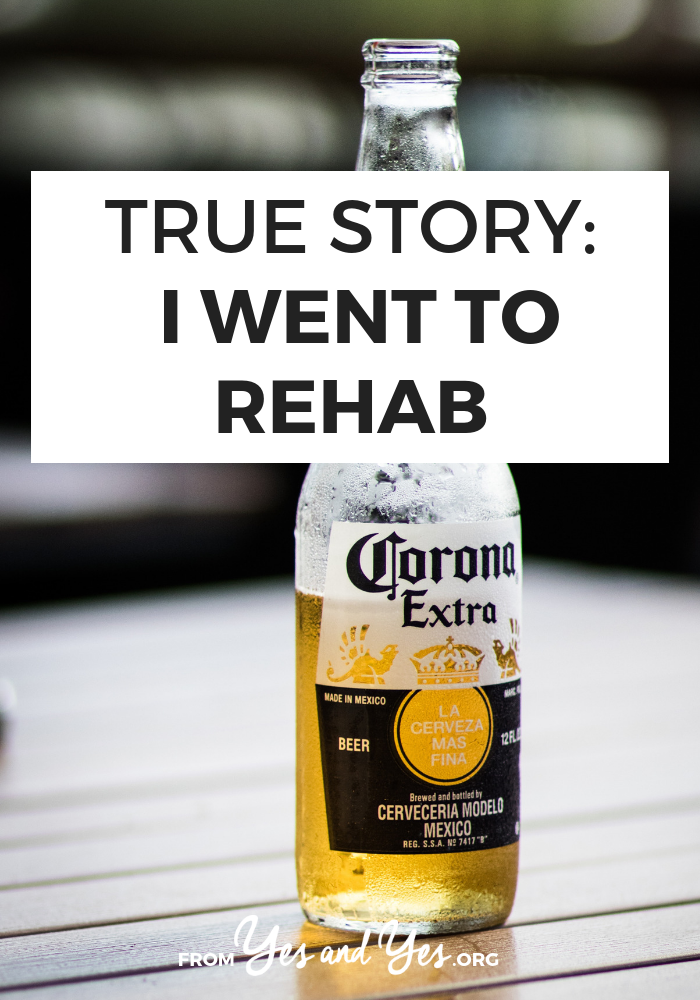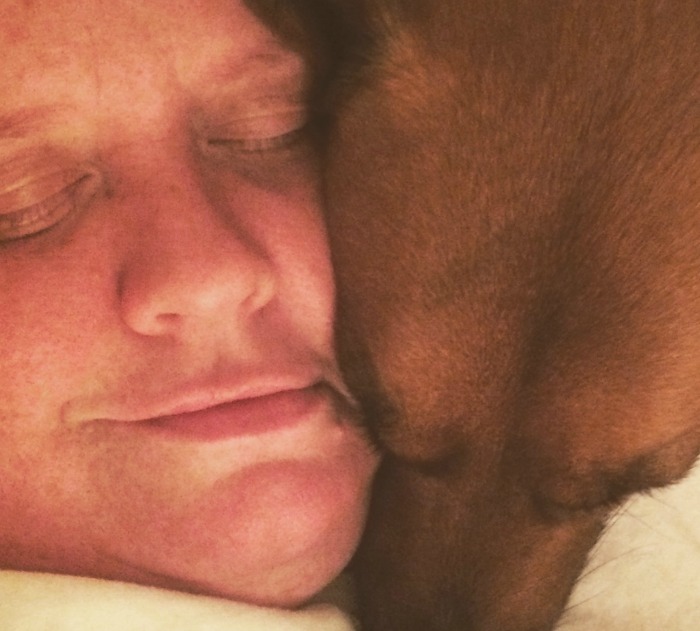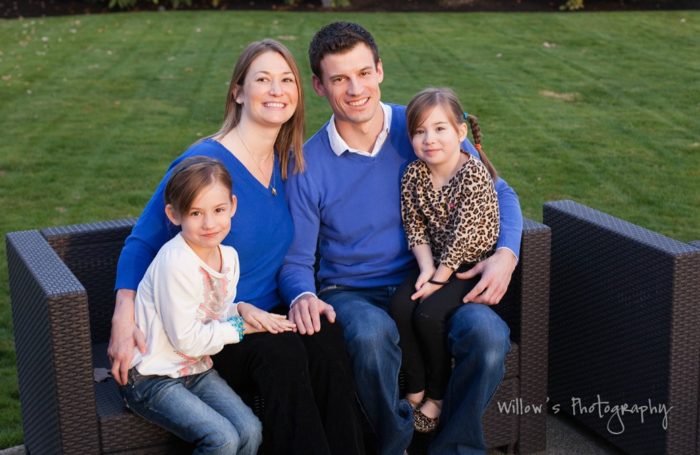
At what point would you go to rehab? How bad would an addiction have to be for you to check yourself into a 30-day inpatient program for alcoholism? Today Leann shares the story of the treatment and rehab that saved her life.
Tell us a bit about yourself!
My name is Leann S. I’m a 38-year-old from Central Indiana, where I work in local government (I’m like the Leslie Knope of my town). When I’m not working I like to read non-fiction, sing show tunes to my little blind dog, and play tourist in my city.
Growing up, how did you feel about alcohol?
Growing up, alcohol wasn’t really discussed in my family and it wasn’t overly prevalent. I don’t remember my parents socially drinking or having a beer with dinner. I remember being taught about drugs and alcohol in school as part of the Just Say No movement of the 1980’s, but it wasn’t a topic that came up often at home.
I was 12 years old the first time I drank alcohol. I was at a family wedding and there was an open keg so my cousin and I filled our Coke cans with beer while no one was looking. I didn’t drink again until the summer after my senior year in high school, but those few times were always binge-drinking blackouts.
I went to a small, liberal arts college in Southern Indiana where drinking was a big part of the campus culture. Every bit of my college drinking was binge-drinking and dangerous. I thought it was normal to do a bunch of shots and drink 12 beers a few times a week.
Do you remember when or why you first started drinking heavily?
I never didn’t drink heavily. The only way I knew how to drink was to go until incapacitated. As I got older, I thought I could get better, more mature at it. I tried different experiments – only drink on the weekends, only 1 bottle of wine with dinner – thinking I could modify my behavior and none of them worked.
Once, I went a month without drinking (January, of course, because New Year resolutions) and celebrated that accomplishment by getting blackout drunk on the February 1st.
Most of my drinking was done out and with people; not really friends, but people I drank with. Things started to shift after my husband left and we divorced four years ago. I started drinking at home by myself regularly, drinking more frequently during the week and had trouble maintaining a normal schedule. My performance at work started slipping (I got written up for sleeping in my office) and I was just desperately unhappy.

Leann with her dog Rocko
Did the people in your life know you had a drinking problem?
They knew I was a problem drinker (i.e. always drank too much), but didn’t know the extent to which I’d shifted into active alcoholism. I was a pretty high-functioning alcoholic and I kept everything I could hidden from people. I think my ex-husband would tell you I’m an alcoholic, but he never confronted me about it.
What made you decide to seek treatment? And what made you opt for an in-patient program rather than just attending some AA meetings?
After a really, really dark weekend of drinking and thoughts of suicide, I told my boss on a Monday morning that I might have a problem with alcohol. He referred me to our insurance company’s EAP (Employee Assistance Program). I did the EAP intake that afternoon.
I got referred Scott for a meeting the next morning. I didn’t know at the time that Scott was an interventionist and that I’d scored so dangerously on the assessments that they wanted me to see him immediately.
I went to Scott the next morning, thinking I would get some tips on how to better manage my drinking and my life. The conversation quickly changed from how to manage my drinking and life. Before I knew it, we were talking about how I was an alcoholic and have always been an alcoholic and I need treatment now to stop my life from spiraling any further down.
Scott wanted me to go to treatment that day, but I told him I had to get some things in order first. We agreed that I’d go the next day. I didn’t even think to ask about other options. I honestly was so relieved that someone was suggesting I get help, that I was sick and not weak, that I had no inclination to argue that there would be a different way.
How did you find and choose your rehab program?
I got into the program in Nashville through Scott’s recommendation. He’d been sending people there for 12 years and they consistently had the highest success rate. It was a 6.5 hour drive from home so I knew I couldn’t run easily when things got hard.
How does one enroll in rehab?
You can call up any in-patient program on your own and say that you’d like to be admitted. It is always best to call first, especially if it’s out of state, to make sure they have a bed open for you. Most facilities have a limited number of spaces and may be full, or have a wait list.
Walk us through an average day in rehab.
An average day in rehab is regimented and without a lot of downtime. You have to be up every morning and do your personal stuff and eat breakfast by 9:00am (and make your bed – that’s a non-negotiable.) We’d have a group check-in and short meditation at 9:00.
From there, depending on the day of the week, you would go to group therapy for 2 hours or to classes on different recovery topics. Lunch is at noon. The afternoon would be split between activities like art therapy or equine therapy and one-to-one sessions with your counselor or social worker. Dinner at 5:00.
Evenings were either in some kind of group, or going off-campus to an AA or NA meeting in the community. There was time in the evenings to read, play games or work on crafts in the common room, or have personal time. All patients had to be in their rooms at 11:00 with lights out at midnight.
How much did your program cost?
Rehab is not cheap and it can be cost prohibitive for a lot of people. Most insurance plans will cover a portion of treatment. If the insurance company believes you have a medical reason that requires in-patient treatment they will authorize a few days at a time. If the insurance company stops authorizing treatment the patient is forced to decide between paying out of pocket or leaving to continue recovery some other way.
Lastly, most plans require that an individual’s deductible and out-of-pocket maximum be reached before coverage kicks in. For most high-deductible plans that means approximately $9,000 paid out of your own pocket before insurance pays.
My treatment facility cost around $700/day. Costs of treatment vary based on the services offered.
What did you learn in rehab that’s helped you stop drinking?
The biggest thing that helped me stop drinking was understanding that I’m an alcoholic and I cannot drink. There’s a saying in recovery about how long people have to do the research before they believe the results. In rehab I learned that I’d been doing the research for over 20 years and the results never, ever changed and they never, ever would change. Because of a combination of my brain chemistry and genetics I have an allergy, of sorts, to alcohol and I have to treat it daily.
Practically speaking, I learned about the 12-step program of Alcoholics Anonymous. I learned that going to meetings in those early stages of sobriety is necessary, even if you don’t really want to do it. I went to a meeting every day for the first 90 days of my sobriety and most days for the first year. I haven’t completed the 12-steps yet, but I will when I’m ready.
What was life like those first few days after you finished the program?
Scary! Exciting! I flew home and went right back into the environment where I’d done all my drinking, which concerned me some. That just meant I had to make choices to establish a firm foundation for my recovery back out in the world where I was responsible for the structure.
I went back to work three days after I got home. It was intimidating and took some time to get used to being around all those people (and technology!) again.
In recovery you learn about doing the next right thing and in those first days back I just kept trying to do the next right thing.
You’ve been sober for two years now. Congrats! What books/tools/websites/resources have helped you stay sober?
There is a ton of material out there to help with recovery. I used the basics like The Big Book and 12 & 12 from AA. I have a book of daily meditations that is helpful. There are podcasts, like Recovery 2.0 or Dharmapunx. I try to meditate and I know most people in recovery find that helpful. And meetings…always meetings! ☺
What advice would you give to anyone struggling with addiction?
Tell someone you trust. If you don’t have someone you trust call your local AA or NA and tell them. “Secrets keep us sick” — as long as your addiction is your secret you cannot get well.
There is ABSOLUTELY NO SHAME in your struggle with addiction. You may have made choices while in active addiction that were not healthy but do not let that stop from you starting to do the work to get better.
Finally, I would say to anyone who is struggling with addiction you are lovable, you are needed, and you are wanted. I didn’t believe that about myself for a long time, but I do now. And, while life is still life and there are problems sometimes, this side of that belief is so much better than you could imagine.
Thank you so much for sharing your story, Leann. Do you guys have any (polite! respectful!) questions for her?






Any survivor of addition inspires me so much. I’ve had bad habits myself and they were really difficult to break out of. I can’t imagine having to deal with what you went through!
Charmaine Ng | Architecture & Lifestyle Blog
http://charmainenyw.com
Wonderful story and congrats on coming face to face with your addiction ! My father was an alcoholic. AA was the ONLY thing that worked for him. Alas, he did not stay with the program and slipped back into alcoholism and, in time, lost his marriage. Unfortunately, this seems to be the more the norm. I know the first thing you learn in Alanon is “You are powerless against this person’s addiction” They have to face it and conquer it themselves. Congrats again on your coming to grips with your addiction. Very smart!
Thank you for your bravery in sharing your story, Leann.
I love you, Leann, and I am very proud of you. I’m so happy to see you happy.
Thanks to Sarah for letting me tell me story and to you guys for reading it and your kind words. I really cannot believe how much better my life is now than it was in active addiction. Please share this with anyone you know who you think might be struggling. The fact that most of us suffer so long in silence is heartbreaking. If this helps even just a little bit to lessen the stigma of addiction that would be a great thing.
“You are lovable, you are needed, you are wanted.” So important for us to believe about ourselves and sometimes hard to remember. Thanks for sharing your story, Leann. You are brave and strong and I am so proud of you.
Wow. It took me awhile to get up the courage to read this. My mom was an alcoholic when I was growing up and was in and out of rehab many times. It was crazy, reading about your rehab facility; it brought back memories of visiting my mom at hers so much so that I could remember how it smelled! Life has changed so much, my mom has been sober for years, thankfully. A HUGE congratulations on your 2 years of sobriety, I know secondhand how massive that accomplishment is. Thank you for sharing your story!